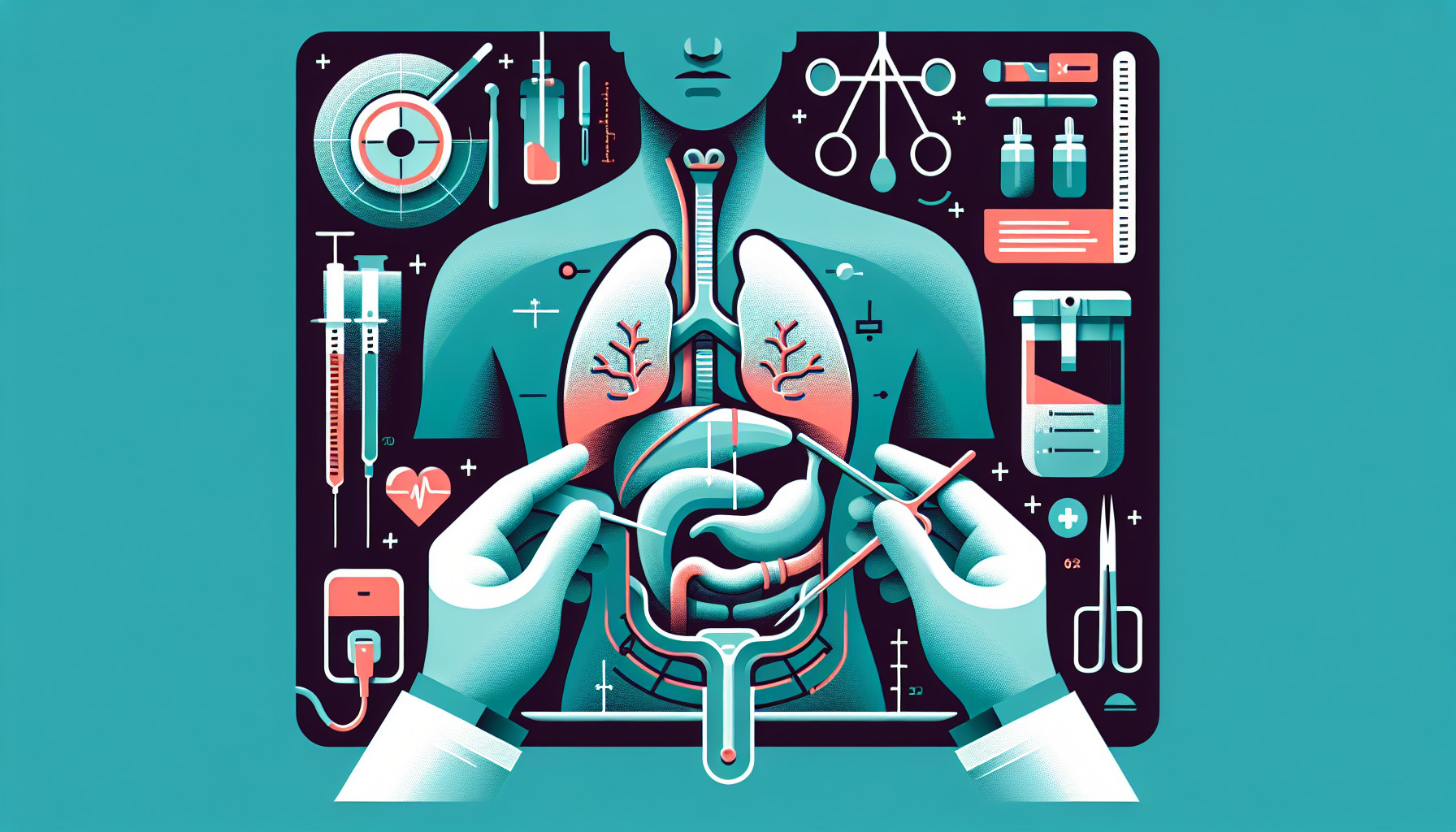Our Summary
This research paper discusses the recent changes and advancements in eligibility criteria for kidney and pancreas transplants. Over time, due to improved medical care before and after surgery, more people are being considered for these transplants. Even older individuals and those with complex medical issues like obesity, frailty, and a history of cancer are now potential candidates. Additionally, the methods for checking the heart’s health before surgery have improved and are less invasive, making it easier to identify heart disease. As a result, more people can potentially join the waiting list for these life-saving organ transplants.
FAQs
- What recent advancements have been made in the eligibility criteria for kidney and pancreas transplants?
- How have improvements in pre- and post-operative care allowed more individuals to be considered for kidney and pancreas transplants?
- How have methods for checking the heart’s health prior to surgery improved, and how does this impact the number of people able to join the waiting list for organ transplants?
Doctor’s Tip
One helpful tip a doctor might tell a patient considering a pancreas transplant is to carefully follow all pre-transplant recommendations and instructions to optimize their health and increase the chances of a successful transplant. This may include maintaining a healthy diet, exercising regularly, managing any chronic health conditions, and avoiding behaviors that can harm the pancreas, such as smoking or excessive alcohol consumption. By taking proactive steps to improve their overall health, patients can increase their chances of a successful transplant and better outcomes post-surgery.
Suitable For
Typically, patients who are recommended for a pancreas transplant are those who have type 1 diabetes and are experiencing severe complications from the disease, such as kidney failure, nerve damage, or eye problems. These complications may significantly impact their quality of life and overall health. In some cases, patients with type 2 diabetes may also be considered for a pancreas transplant if they are insulin-dependent and have difficulty controlling their blood sugar levels.
Patients who have undergone a kidney transplant and are experiencing complications related to their diabetes may also be recommended for a simultaneous pancreas-kidney transplant. This procedure can help improve their overall health and reduce the risk of further complications.
Overall, the decision to recommend a pancreas transplant is made on a case-by-case basis, taking into consideration the patient’s medical history, current health status, and potential benefits of the transplant. It is important for patients to work closely with their healthcare team to determine if a pancreas transplant is the best option for their individual situation.
Timeline
Before pancreas transplant:
- Patient is diagnosed with end-stage kidney disease and/or type 1 diabetes
- Patient undergoes extensive medical evaluations to determine eligibility for transplant
- Patient is placed on the transplant waiting list and waits for a suitable donor organ to become available
- Patient receives pre-transplant care to optimize their health and prepare for surgery
After pancreas transplant:
- Patient undergoes surgery to receive the new pancreas
- Patient is closely monitored in the intensive care unit post-surgery
- Patient stays in the hospital for a period of time to recover and receive post-operative care
- Patient undergoes regular follow-up appointments with their transplant team to monitor the success of the transplant and manage any potential complications
- Patient takes immunosuppressant medications for the rest of their life to prevent rejection of the new organ
Overall, the timeline of a patient’s experience before and after a pancreas transplant involves a thorough evaluation process, surgery, post-operative care, and lifelong management of the transplant. With advancements in medical care, more individuals are now eligible for pancreas transplants and have access to life-saving treatment options.
What to Ask Your Doctor
Am I a suitable candidate for a pancreas transplant?
What are the risks and benefits of a pancreas transplant for my specific medical condition?
What is the success rate of pancreas transplants at this hospital or transplant center?
How long is the waiting list for a pancreas transplant and what factors determine priority on the list?
What is the recovery process like after a pancreas transplant and how long will it take for me to fully recover?
What medications will I need to take after the transplant and what are the potential side effects?
How often will I need to follow up with my transplant team after the surgery?
Are there any lifestyle changes I will need to make after a pancreas transplant?
What are the potential complications or risks associated with a pancreas transplant?
How long can I expect the transplanted pancreas to function properly?
Reference
Authors: Regmi S, Rattanavich R, Villicana R. Journal: Curr Opin Organ Transplant. 2021 Feb 1;26(1):62-68. doi: 10.1097/MOT.0000000000000843. PMID: 33332923
